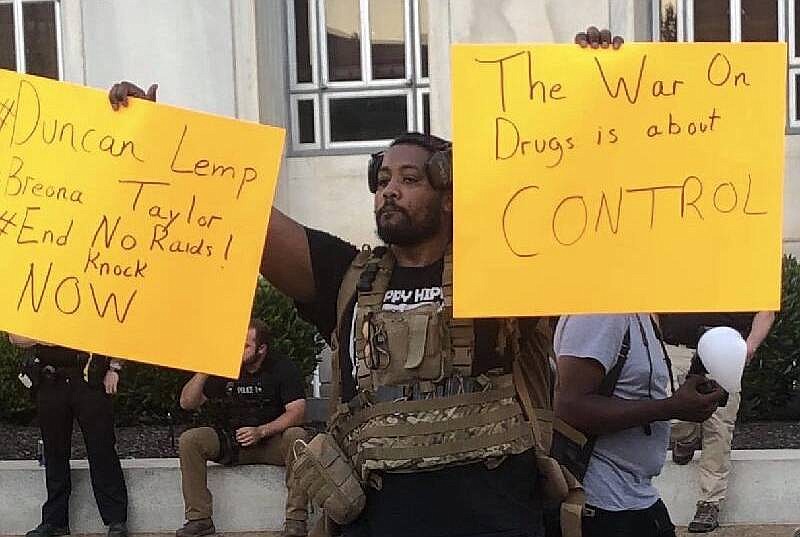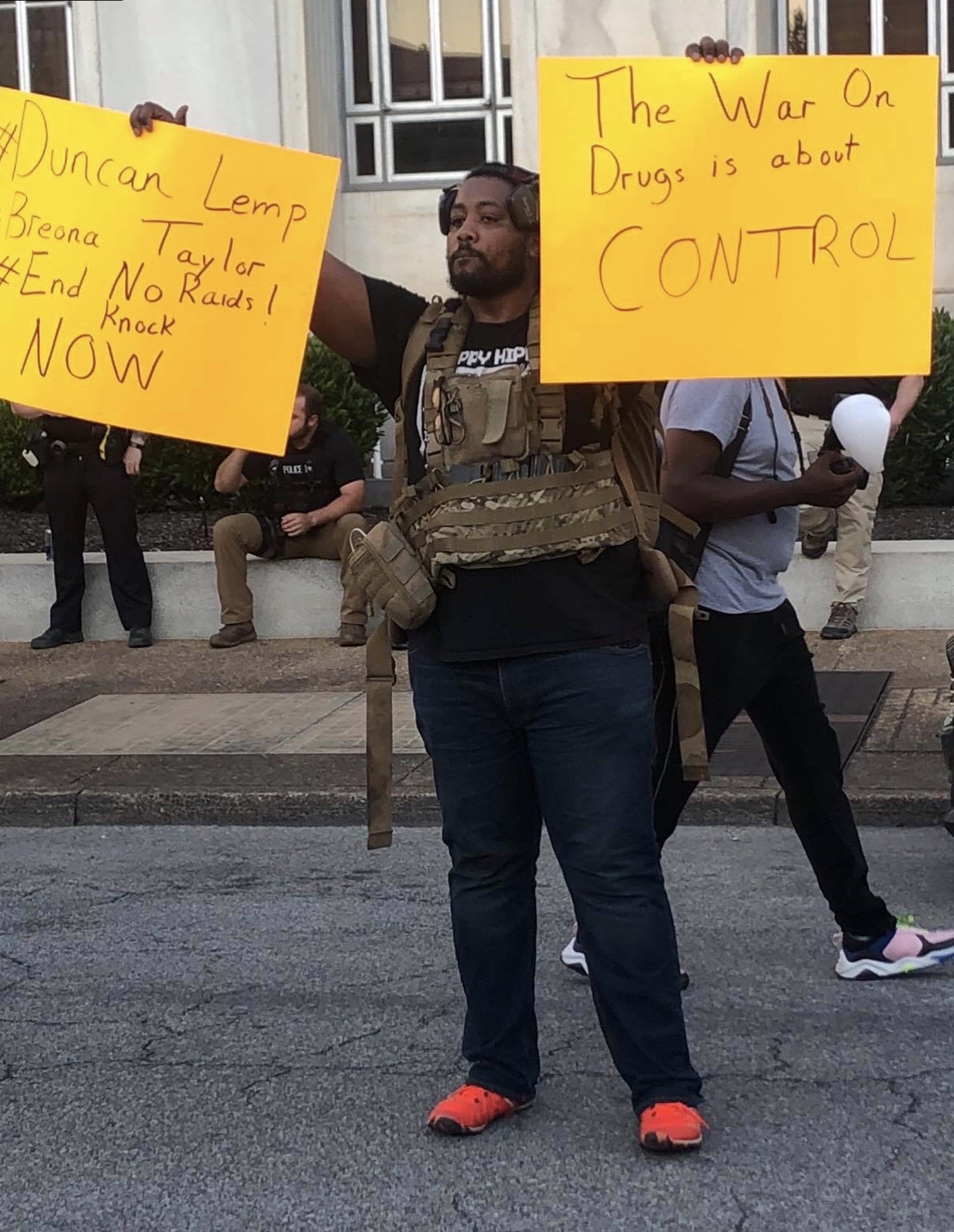Charges against Trevan Young, an armed man who was arrested during Chattanooga's protests against racial injustice, have been sent to the grand jury.
Young, 29, was arrested on June 1 after Chattanooga police said they received credible information that a man with an AR-15 and magazines in his backpack might be intending to harm the people attending the demonstrations.
The protests were in response to the May 25 death of George Floyd, a Black man who died under the knee of a white police officer in Minneapolis. Young was the first of two illegal firearm arrests during Chattanooga's protests.
"We received information that he had made statements prior that were heard that he was intending to do harm to other protesters at the protest," Officer Nicholas Hayes testified at Young's preliminary hearing on Tuesday.
During preliminary hearings, a judge determines only whether there was probable cause to support an arrest. A grand jury must then decide whether the charge is appropriate and whether there's enough evidence to support that charge. And a trial jury then determines whether there is evidence beyond a reasonable doubt to convict the defendant.
Hayes said he called out to Young to stop and talk, but Young turned around and said, "'No.'"
Hayes called out to him again, and Young again said, "No" and continued walking away, the officer said.
Young's attorney, McCracken Poston, argued that Young was wearing noise-canceling headphones, listening to music and couldn't hear the officers. Hayes rebutted, noting that Young made eye contact with the officer when he said "no" in response to being asked to stop.
Poston said Young's "no" could have been in response to anything - "It could have been 'No, don't touch me.' 'No, get away from me.'" Or "'No, I don't want to talk to you,' which is also his right as a citizen," Poston said.
Hayes, however, said he was too far away from Young to touch him when he first called out to Young.
Once Young was in custody, officers found a disassembled AR-15 concealed in his backpack and multiple AR-15 magazines, one of which was loaded and easily accessible to him from the load-bearing vest he was wearing, according to court records. Another loaded magazine was found in his back right pocket.
The Bureau of Alcohol, Tobacco, Firearms and Explosives, a federal agency, then took on the follow-up interviews. The agency has not confirmed whether it has opened its own investigation.
Poston said his client was frightened by the officers, afraid they would engage in the very behavior against which he was protesting.
"Mr. Young saying 'they're going to kill me' - we don't have to look back in a history book to know what these young people were protesting," he said, referring to a video of the arrest in which Young can be heard saying, "They're going to f - - kill me! They arresting me for no reason."
Assistant District Attorney Bryan Starnes said Young's statement created a "hazardous condition with no legitimate purpose in a very public place."
Both the prosecution and Hamilton County General Sessions Court Judge Christine Sell agreed that it should be up to a jury to decide whether a disassembled firearm is considered a deadly weapon and whether Young had a legal right to carry it at the protest.
While Tennessee's gun laws contain many caveats to firearm prohibitions and undergo minor changes quite often, it is generally illegal to carry a loaded firearm without a permit or other sanction.
There are multiple exceptions. One would be if the rifle was unloaded, not concealed and the ammunition was not in the immediate vicinity of the person or weapon, according to state law. Or if the carrying of the loaded firearm was "incident to lawful hunting, trapping, fishing, camping, sport shooting or other lawful activity," according to the law.
Poston argued that the act of peaceful protesting would fall under the category of "other lawful activity," he told the judge.
"It is not qualified by 'other sporting activity,'" he argued. "It is, what I feel - because I saw this happen in the Georgia legislature - it was kind of a poison pill put in the legislation by the NRA [National Rifle Association] to allow you pretty much if you're engaged in lawful activity, you are allowed to carry it."
In closing arguments, Poston began detailing Young's previous military career. Judge Sell interrupted, saying she wouldn't allow arguments based on proof that was not entered into evidence.
The judge ultimately found probable cause for all three charges - possession of a firearm with intent to use it for harm, resisting arrest and disorderly conduct - and they were bound over to the grand jury.
Contact Rosana Hughes at 423-757-6327, rhughes@timesfreepress.com or follow her on Twitter @HughesRosana.

